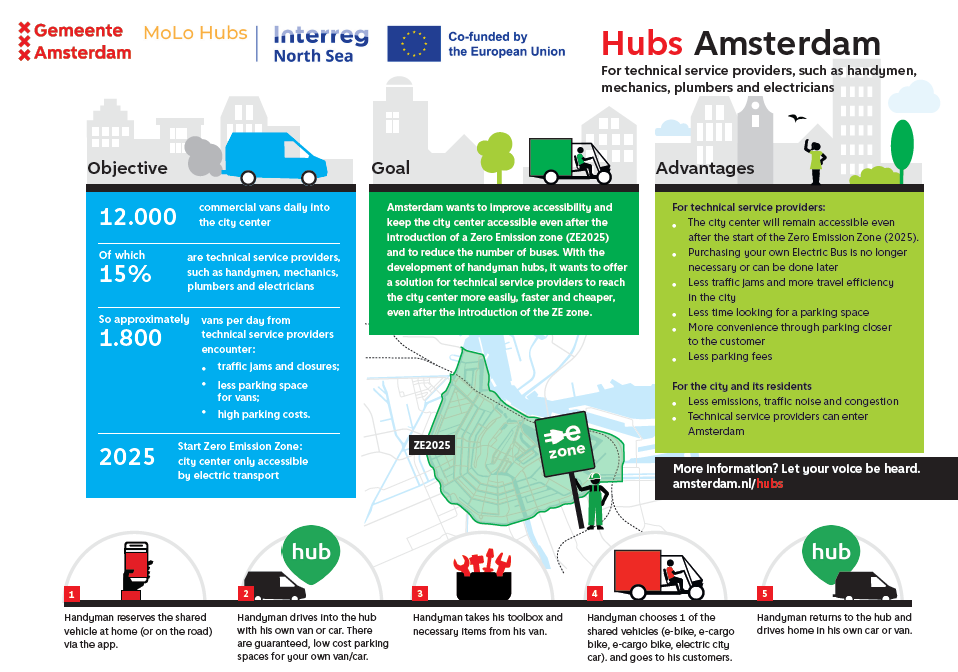It was impressive to see all the cargo bikes and light electric vehicles gathered in the garage beneath the Passenger Terminal in Amsterdam. Various providers of zero-emission vehicles came together for a ‘Meet & Match‘ event, connecting with potential users—entrepreneurs from construction, installation technology, and other facility and technical service industries.
This event is a precursor to a pilot project later this year. Project leader Frank Ebbink (City of Amsterdam) explained, “There’s still room for entrepreneurs who want to explore alternative transport options, especially with the upcoming emission-free zone.”
The event offered a glimpse into the future of urban logistics dominated by electric vehicles and cargo bikes instead of petrol or diesel vans. Participants learned about the potential benefits electric vehicles could bring to their businesses. One entrepreneur noted, “I think it’s a great solution for my mechanics who struggle to get driver’s licenses. They’re talented, young guys, which might be perfect for them.”

Exploring Different Options
After being introduced to the vehicles, buyers and suppliers had the chance to discuss the possibilities. Ebbink encouraged the entrepreneurs to share their preferences. “The type of vehicle depends on the job,” said one construction entrepreneur, adding that appearance also matters: “My mechanics want to ride something that looks cool.” Another entrepreneur noted the desire for a vehicle resembling a bus: “I’d love to replace all my buses with electric ones, but I can’t afford it. That’s why I’d prefer something that could replace my current fleet.”
One entrepreneur raised a key question: “Is the demand for these vehicles coming from the market, or does the municipality drive it?” Ebbink responded, “It’s a bit of both. In Amsterdam, we’re facing serious issues with the number of vehicles, traffic movements, limited parking spaces, and high parking costs. We also aim to set new emission standards with zero-emission zones. We want businesses to keep operating in the city, so we’re exploring new transport solutions.” He pointed out that 12,000 buses enter the city center daily, with 1,800 from technical service providers alone—plenty of potential for change.
Flexible Subscription Models
The hub offers cargo bikes, light electric vehicles, and a digital system. During the Meet & Match, specialists explained the three usage models: a fixed subscription for frequent users, a flexible option for regular users, and separate bookings for occasional users. Users can access the hub and choose a cargo bike or light electric vehicle with an app. Susanne Balm from the Amsterdam University of Applied Sciences presented a calculation model that factors in variables like travel time, parking search time, and hub costs.
The pilot, part of the European MoLo Hubs project, is set to begin in the last quarter of 2024. Technical service companies are invited to participate. MoLo Hubs is an EU-funded transnational innovation project that aims to tackle challenges related to urban mobility and logistics. It combines mobility hubs and logistics services to improve the quality of urban life and boost mobility transition: “We cut emissions, reduce traffic, and create urban meeting places to make our cities more liveable”.
